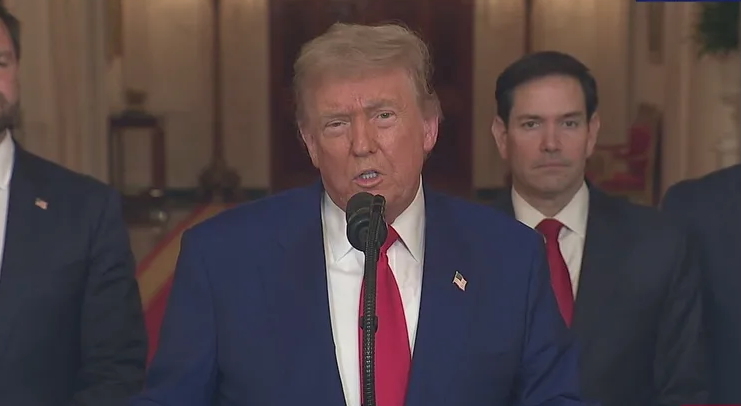Editors at National Review Online offer context to President Donald Trump’s recent military strike in the Middle East.
This war did not begin on Saturday night with America’s Operation Midnight Hammer, in which the U.S. deployed its fearsome firepower against some of Iran’s most hardened nuclear facilities. It did not begin on June 13, when Israel inaugurated its preemptive strikes on Iranian nuclear, science, intelligence, military, and paramilitary targets with awe-inspiring precision and technical acumen. It began on October 7, 2023. It was after the massacre that Israel began systematically taking apart the “six armies outside Iran” that Islamic Revolutionary Guard Corps commander Qasem Soleimani bequeathed to his successors.
Today, Hamas is defanged. Hezbollah is decimated. The Houthis have been degraded. Iran’s vassal regime in Damascus is no more. In the effort to avenge its fallen compatriots, Iran executed two ballistic missile strikes on Israel in 2024 — both of which begat retaliation against Iranian air defenses. Apparently, those defenses went unrepaired. Israel finished the job it started last year early in the operation that finally targeted Iran’s nuclear weapons facilities, presenting Donald Trump with a tantalizing window of opportunity to do what his predecessors could not or would not.
Trump deserves credit for ignoring the voices in Washington who counsel inaction out of an understandable but often paralyzing fear of unintended consequences. Every president in this century has promised to prevent Iran from achieving the capacity to break out with a nuclear weapon. Trump followed through on that talk. The strikes can be seen, therefore, as not a departure from U.S. policy but the fulfillment of it. Indeed, both Israel and the U.S. will have emerged from this war with more credibility regarding preemption against nuclear proliferators — a condition that, one hopes, will put the fear of God into rogue states thinking about pursuing their own bomb.
The post Bombing Iran made the world safer first appeared on John Locke Foundation.
Click this link for the original source of this article.
Author: Mitch Kokai
This content is courtesy of, and owned and copyrighted by, https://www.johnlocke.org and its author. This content is made available by use of the public RSS feed offered by the host site and is used for educational purposes only. If you are the author or represent the host site and would like this content removed now and in the future, please contact USSANews.com using the email address in the Contact page found in the website menu.







